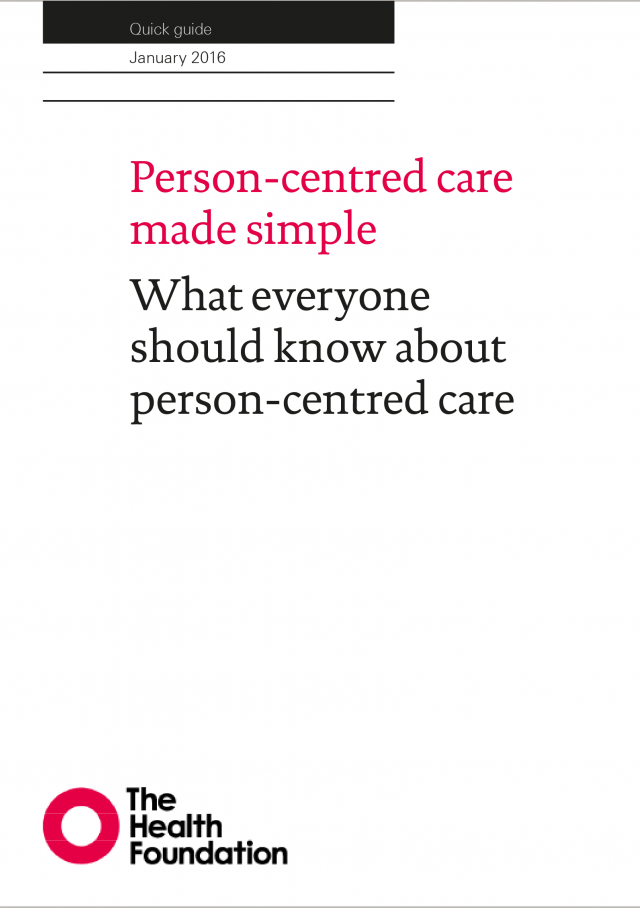Person-centred care made simple What everyone should know about person-centred care
October 2014

Key points
- This seeks to provide a quick overview of person-centred care, offering a clear explanation of the principles, why it is important, how it has developed, and some examples to help those considering putting person-centred care into practice.
- It's written for anyone interested in health and health care, including health care professionals and those who use the NHS.
The challenges facing the NHS are well understood. There are growing numbers of older people and people living with long-term conditions and disabilities. At the same time, health and social care budgets are under increasing pressure.
If we are to provide high-quality care that affords people the best possible quality of life, we need to rethink the relationship between people and the services that provide their care.
In person-centred care, health and social care professionals work collaboratively with people who use services. Person-centred care supports people to develop the knowledge, skills and confidence they need to more effectively manage and make informed decisions about their own health and health care. It is coordinated and tailored to the needs of the individual. And, crucially, it ensures that people are always treated with dignity, compassion and respect.
Cite this publication
Further reading
Work with us
We look for talented and passionate individuals as everyone at the Health Foundation has an important role to play.
View current vacanciesThe Q community
Q is an initiative connecting people with improvement expertise across the UK.
Find out more


